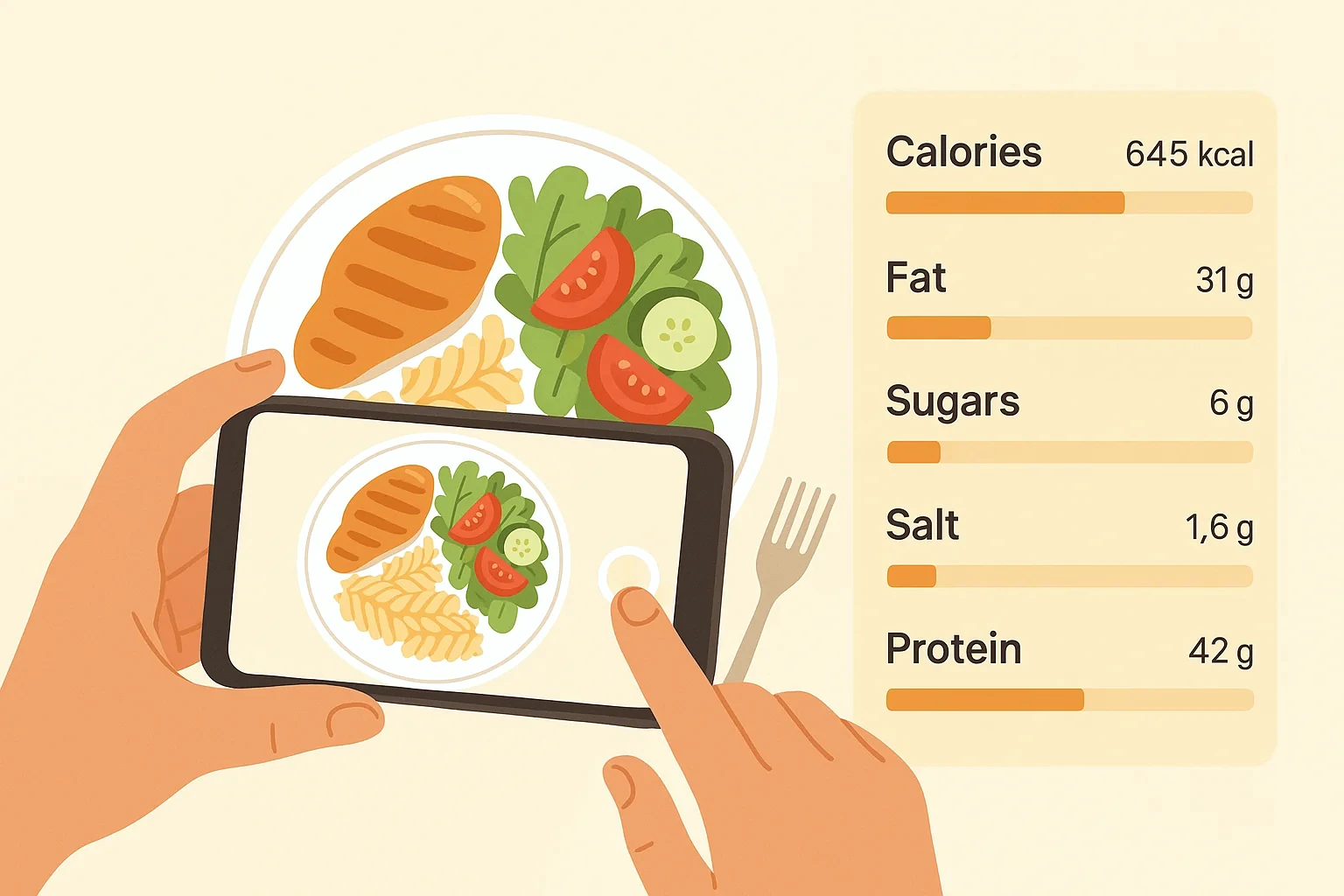5 Ways AI Is Revolutionizing Nutrition Tracking

1. Visual Food Recognition
Perhaps the most game-changing application of AI in nutrition tracking is visual food recognition technology. Modern applications can now identify foods and portion sizes from a simple photograph. This removes the tedious process of manually searching databases and estimating quantities.
With just a quick snapshot of your plate, AI algorithms can identify individual components, estimate serving sizes, and provide detailed nutritional breakdowns. The technology continues to improve, with some systems now able to distinguish between visually similar foods like brown rice and quinoa, or estimate the hidden ingredients in mixed dishes.
2. Personalized Nutritional Insights
AI doesn't just track what you eat—it learns from your patterns. By analyzing your eating habits over time, AI systems can provide personalized recommendations that account for your unique metabolism, activity level, food preferences, and health goals.
These insights might include identifying nutritional gaps in your diet, suggesting alternatives to meet specific macro or micronutrient targets, or even predicting how certain meal choices might affect your energy levels and mood based on your historical data.
3. Real-time Feedback and Coaching
Modern AI nutrition tools don't wait until the end of the day to provide feedback. Many now offer real-time coaching as you make food choices. This might come in the form of gentle nudges toward healthier options when browsing restaurant menus, suggestions for balancing your meals as you plan them, or immediately highlighting how a specific food fits into your daily nutritional goals.
This immediate feedback loop helps users make informed decisions in the moment, rather than reviewing mistakes after they've already been made.
4. Integration with Health Data
AI nutrition tracking isn't happening in a vacuum. Modern applications integrate with other health metrics like activity levels, sleep patterns, stress indicators, and even blood glucose readings from continuous monitors. This creates a comprehensive health picture that helps users understand the relationships between their nutrition and overall wellbeing.
For example, AI might notice that you tend to experience energy crashes after high-carb lunches, or that your sleep quality improves when you consume more magnesium-rich foods in the evening. These insights would be nearly impossible to identify manually.
5. Predictive Nutritional Analysis
Perhaps most impressively, advanced AI systems can now predict how certain nutritional choices might affect your health outcomes. Using vast datasets and machine learning, these tools can estimate how your current eating patterns might impact your risk factors for various health conditions over time.
Some systems can even simulate the potential impact of dietary changes before you make them, helping you visualize the cumulative effect of consistent nutrition choices on your health goals, whether that's weight management, athletic performance, or managing specific health conditions.
The Future of AI Nutrition Tracking
As AI technology continues to advance, we can expect nutrition tracking to become even more seamless and insightful. Future developments may include:
- Wearable devices that can analyze nutritional intake without requiring manual logging
- More accurate assessment of how individual bodies process specific foods
- AI that can suggest recipes based on your nutritional needs and the ingredients you have available
- Integration with grocery shopping platforms to guide healthier purchasing decisions
Conclusion
AI has transformed nutrition tracking from a tedious chore into an insightful, personalized experience that can genuinely improve health outcomes. By removing barriers to consistent tracking and providing deeper insights than ever before, these technologies are helping people develop healthier relationships with food and make informed nutritional choices.
While no technology can replace the value of working with nutrition professionals for specific health concerns, AI tools have democratized access to nutritional insights and made the journey to better eating habits more accessible for everyone.
Ready to experience the future of nutrition tracking? Try Crumpeat's AI-powered food tracking and get detailed nutritional insights with just a photo of your meal. Try the Demo